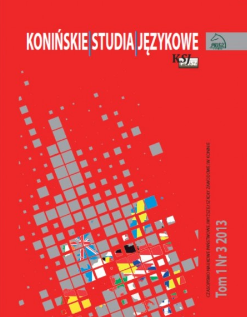Using Q methodology to examine the effect of imagery training on possible second language selves among basic English users
Using Q methodology to examine the effect of imagery training on possible second language selves among basic English users
Author(s): Simon CookeSubject(s): Foreign languages learning, Language acquisition, Higher Education , Methodology and research technology, Pedagogy
Published by: Akademia Nauk Stosowanych w Koninie
Keywords: Q methodology; imagery; possible L2 selves; intervention study;
Summary/Abstract: A number of studies have shown the role of imagery training in the enhancement of advanced or dedicated English learners’ ideal L2 selves. This article details an intervention study which sought to examine the effect of imagery training on Japanese university students with elementary levels of English. Data from a control and an experimental group, both consisting of 23 students, was collected by means of Q methodology and substantiated with supporting comments. Pre-intervention analysis revealed that both groups of students held positive but vague notions of their future L2 selves. Post-intervention analysis revealed that while control group students who did not take part in imagery activities did not develop or maintain these concepts, participants in the experimental group displayed both maintenance and promotion of their future L2 self concept. The study thus shows how imagery training, student English level notwithstanding, can be effective in promoting the future L2 self.
Journal: Konińskie Studia Językowe
- Issue Year: 8/2020
- Issue No: 2
- Page Range: 121-141
- Page Count: 21
- Language: English

